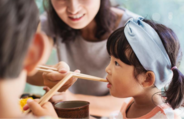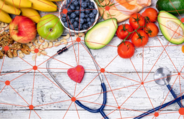Protecting Children Action Plan
At Mars, cocoa is at the heart of our company’s long heritage and an integral ingredient in our beloved chocolate products. We know a sustainable cocoa sector is essential to ensure we can continue to provide chocolate for future generations of chocolate lovers in a manner that protects human rights in cocoa farming communities. For decades, we have worked in collaboration with others toward achieving sustainable cocoa production and a cocoa supply chain where everyone has the opportunity to thrive, human rights are respected, and the environment is protected. However, progress has been slow, and we believe that we and others must significantly step-up our efforts to drive the change that is needed. That’s why we launched our Cocoa for Generations strategy in 2018. Backed by an investment of billion over 10 years (2018-2028), our efforts are focused on protecting children, preserving forests and improving farmer income across our cocoa supply chain while also strengthening the viability of the cocoa supply in the future by helping farmers grow more cocoa on less land, diversifying their crops and income, and empowering women and communities.
Our Strategic Approach to Protecting Children in Cocoa Farming Communities
Protecting children and empowering women and communities are pivotal to a thriving cocoa supply chain. The countries where most cocoa is sourced often face multiple economic and social challenges, such as extreme poverty, insufficient law enforcement, a lack of basic infrastructure such as clean water, roads, healthcare and schools, and poor access to information, agronomic inputs, or finance for farmers. In addition, certain social norms may hamper the empowerment of women and communities, and limit standards of living in cocoa growing households. These root causes can contribute to adverse human rights impacts.
Our Strategic Approach to Protecting Children in Cocoa Farming Communities sets out how we identify, prevent and mitigate human rights issues - with a focus on child and forced labor in our extended cocoa supply chain – through implementing human rights due diligence processes as well as community-based investments that help tackle the root causes of these complex issues. In all this work, we aim to put cocoa farmers and communities at the center of our efforts.
Our approach comprises four main levers, designed to be mutually reinforcing:

1. Robust Child and Forced Labor Monitoring and Remediation Systems: Our first priority is to ensure our suppliers have in place robust child and forced labor monitoring and remediation systems designed to identify, prevent and seek to remediate cases of child labor and forced labor as appropriate. Data from ICI has shown that, following three years of implementation, Child Labor Monitoring and Remediation Systems (CLMRS) have the potential to reduce by 50% the risk of child labor among children covered by the CLMRS. Expanding CLMRS coverage in our West African origins is our focus in the near-term. The balance of the reductions will require community-based investments that help tackle root causes, including investments in Women’s Social and Economic Empowerment, Increases Access to Quality Education, and Increasing Income. We will seek to ensure 100% of at-risk families in our cocoa supply chains are covered by Robust Child and Forced Labor Monitoring and Remediation Systems by 2025. We anticipate that in order to achieve our Cocoa for Generation ambition by 2025, at least 180,000 cocoa farming households will need to be reached with an estimated 540,000 children in our four West African origins (Ghana, Côte d’Ivoire, Cameroon and Nigeria). We will also take action in other origin countries as appropriate.
2. Women’s Social and Economic Empowerment: The well-being of women in cocoa communities is a critical link to family food security and nutrition, education, and health and drives the long-term prospects for a future of educated cocoa farmers. Together with CARE International, we have developed a unique Village Savings and Loans Association (VSLA) model that includes a number of essential building blocks beyond the foundational savings and loans activity. Research conducted in VSLA communities supported by Mars shows that they increase women’s social and economic empowerment and more than double women’s average savings when they are supported over a three-year period. To further our efforts to empower women, we bolstered our partnership with CARE in 2020. We extended our partnership with CARE with the support of a M investment to further expand our unique VSLA model beyond the 24,000 members we have supported through the end of 2020. We are targeting to reach more than 60,000 members in cocoa communities in Côte d’Ivoire and Ghana by 2025.
The empowerment of women and girls is a dynamic and transformative process of change, which requires to us to address gender inequalities and disempowerment across multiple dimensions and also presents a variety of entry points for the transformation needed to reshape the future of cocoa. To address these challenges, we have partnered with the Royal Tropical Institute (KIT) to conduct qualitative research to understand and explain behaviors, experiences and attitudes in relation to the (in)equality and (dis)empowerment that women face in their daily lives in cocoa growing communities in Côte d’Ivoire, Ghana and Indonesia. We have called this first stage of the work the Empathy Generation phase. This unique study covers understanding of aspirations, challenges and rich realities of women of all ages by listening to them and helping their voice to be heard. The complete results of this first phase of research are bundled in the Empathy Report, which can be accessed through here.
3. Increasing Access to Quality Education and Development Opportunities for Children: Education access and quality are critical components of driving better long-term futures for children in cocoa-growing communities. Since 2017, we have worked with the Transforming Education in Cocoa Communities (TRECC) program funded by the Jacobs, Bernard van Leer and UBS Optimus Foundations, through the implementation of a number of pilots. This work has given us insights into the powerful linkages between robust monitoring systems, women’s empowerment and education interventions. In the long term, investing in education can have a positive circular effect: educated children can earn higher incomes and contribute more to the development of their own children, households and communities. We will continue to learn from our work with Jacobs Foundation and other expert education organizations to develop additional programs and interventions where relevant, particularly in other countries.
In 2020, in collaboration with a number of key industry players and stakeholders from the cocoa industry, we committed .3M to support the Jacobs Foundation’s creation of two new funding facilities aimed at promoting quality education and early childhood development and nutrition, in line with the Côte d’Ivoire’s government strategic objectives in the fight against child labor.
4. Increasing Income: At Mars, we believe everyone working within our extended supply chains should earn sufficient income to maintain a decent standard of living. Many smallholder farms are family businesses and, like Mars as a family-owned business, we want those farming businesses to be successful for generations to come. Increasing their income is incredibly complex, and it is only one aspect of the multidimensional poverty small holder farmers are facing. No single player can solve poverty alone but as a company we can play a significant role, using an evidence-based and principles-led approach alongside other critical actors, including governments, suppliers, supply chain partners, the Farmer Income Lab and the farmers themselves, in achieving this ambition.
Collaborations & Progress
Collaboration is critical to making progress in addressing the complex and systemic issues prevalent in the cocoa supply chains we rely on. We are keen to partner and learn for increased impact, and we strongly believe that a holistic approach has higher chances of success. That is why we are committed to working with governments, suppliers, civil society, farmers and communities to advance our shared goals and we will continue collaborating with experts including CARE International, The International Cocoa Initiative (ICI), Jacobs Foundation, The Royal Tropical Institute (KIT), Oxfam and Verité.
Through these collaborative efforts, we will continue to work to advance respect for human rights, while ensuring our own Protecting Children Action Plan focuses on what we believe are the most salient issues and prioritizes the most vulnerable people in the supply chain.
We will share the challenges and lessons-learned through our work, as there are still few proven models and approaches, and we want to contribute to the growing body of knowledge about what works. Our progress toward achieving our goals will be reflected annually in our Cocoa for Generations report. The most recent issue can be found here.
The Protecting Children Action Plan is complemented by our Cocoa and Forests Approach to prevent deforestation throughout our cocoa supply chain.
Download our Protecting Children Action Plan here.
For the latest update on our work to advance respect for human rights, we invite you to read our Respecting Human Rights in the Cocoa Supply Chain Report. The report features the progress we’ve made, what we are learning and where more effort and collaboration is needed to achieve our 2025 human rights goals.



